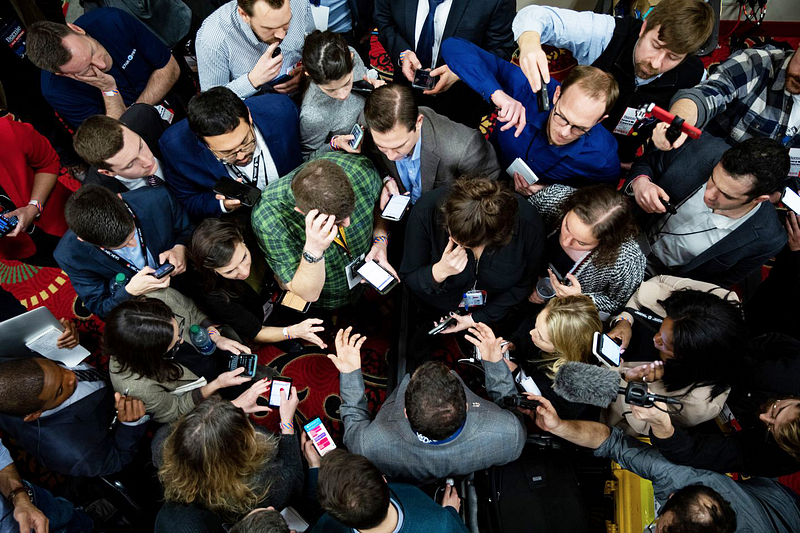
“Do you know who I am?”
This of the self-aggrandizing and delusional question that the mean girls, perhaps the Regina George and Gretchen Weiners, of the United States, Iowa and New Hampshire, would ask of anyone questioning their electoral privileges and responsibilities.
They could ask: “Do you know who I think I am?” Or actually: “Do you know who U.S. history has made me think I am?”
With the Iowa caucuses just passed, this Monday, Feb. 3, I think it is important to address that Iowa and New Hampshire are not all that and that they, therefore, should not be treated as such.
This year, with the confusing lack of results and — to be frank — an absolute failure that the Iowa caucuses turned out to be, it seems that they may not become all that. Albeit for the wrong reasons, this mishap may turn out to be a good thing, for Democratic voters are now no longer looking at the Caucasus as the small God of the primaries.
But, to understand how they became so important, here is a brief historical background: In the 1970s, previously-elusive Democratic candidate George McGovern gained sudden national recognition from appearing as well-known Edmund Muskie’s runner-up. Since then, presidential candidates, starting with Jimmy Carter, increasingly began to put campaign efforts and emphasis on winning in Iowa — which is a mistake.
For example, according to the Des Moines Register, this year Democratic candidates have spent close to $40 million on ads in Iowa and this number, with three more elections to come — county, district, and state — will only grow. In 2016, according to the final batch of ad-spending numbers from SMG Delta, a bombardment of more than $70 million was spent by Democrats and Republicans on ads for Iowans.
Iowa and New Hampshire — as well as Nevada, though it is lesser-known for this practice — hold caucuses, which are meetings at which local members of a political party register their preference among candidates running for office through their physical presence. Rather than casting ballots, voters in Iowa and New Hampshire gather at set locations and people walk around a large room to stand in their candidate’s corner, after which everyone is tallied, and all candidates without 15 percent of the total voters are removed from the caucus ballot. Then, the voters in the non-viable-less-than-15-percent groups either move to a different candidate for the final realignment or they can leave. Finally, when all the results are in from the precincts, the candidates will get delegates based on their winning or losing numbers
Consequently, the process for the election of candidates is much more involved, for both the candidates and the voters, and because of the unwarranted hype, Iowa and New Hampshire have become almost mystical barometers and electability tests for candidates. Tests that receive excessive national coverage and affect every state thereafter. Unlike before, however, it is the failure that has been the subject of this reporting, leaving Pete Buttigieg’s and Bernie Sanders’ campaigns, the apparent winner and runner-ups of these elections, without the ability to highlight the weightiness of his win in Iowa.
Returning to history, McGovern won the Democratic national nomination and Carter won the presidency, but really, many candidates that win in Iowa do not win their party candidacy. These two men are exceptions to the rule.
This unjustified effect that these elections have is also exacerbated by the fact that they are the first of the primaries, allowing time for the results to permeate.
Elections in both of these states are important and historical, but Iowa and New Hampshire should not be treated as the pea(s) in “The Princess and The Pea,” where the other states are the mattresses, dejected for their duties, but that is truly just as important and substantive elections. The princess’s ability to sleep should not be based on four percent of her nightly composition, much like the presidency should not be based on two of the 50 states or 41 of 1,990 delegates.
Furthermore, Iowa and New Hampshire, in their combined populations, are almost 90 percent non-Hispanic white. Currently, these spoiled states are equivalent in diversity to the country they supposedly represent 150 years ago, in 1870. These states also have a disproportionately older demographic of voters while also lacking in cities with more than 250,000 residents.
Caucuses are important and historical; they place political fates in the voters’ hands, or, I guess, shuffling feet, but they can no longer dictate, temporally and demographically, everything they seemed to. In this election, it seems pundits now look ahead to New Hampshire, holding their primaries soon, and the rest of the states as the results still seep in from Iowa.
I propose that Iowa should not be first. While some have theorized orders for primaries, and I will not go into those, I simply submit that Iowa and New Hampshire should be leveled with the rest of the states, and maybe even lowered underneath a few, more representative states for presidential elections.

























